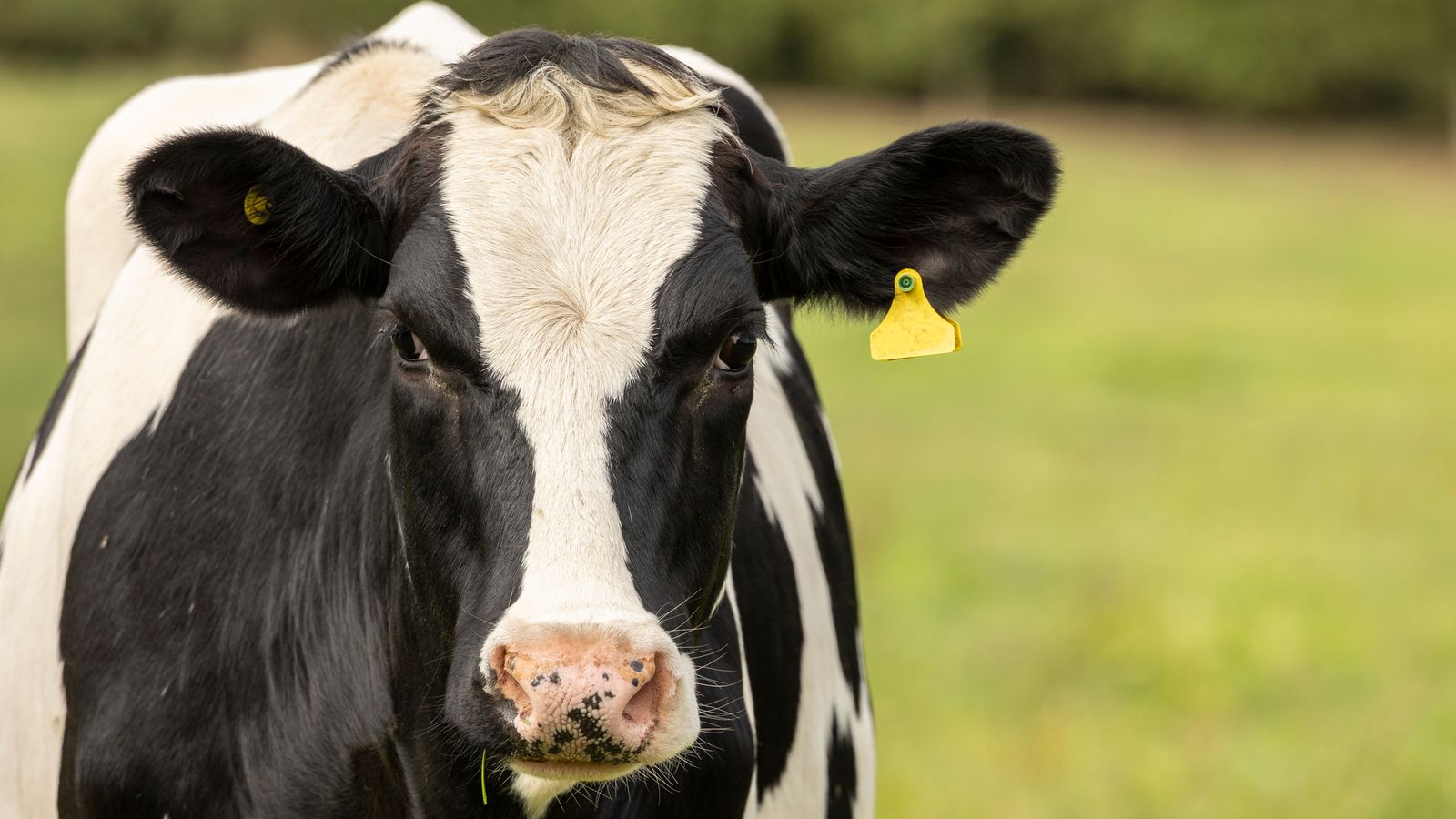The UK has suspended imports of live cattle, sheep and goats from France following the outbreak of a disease which can be fatal to cows.
Epizootic haemorrhagic disease (EHD) has been reported in southern France for the first time, having previously been recorded in Spain, Portugal and southern Italy.
The virus which causes the disease is usually spread to ruminants – hoofed herbivores such as cows, deer and sheep – through the bites of infected midges.
More than 250 outbreaks of the disease have been recorded in Spain, Portugal and Italy since the disease was first spotted in Europe in November last year.
Scientists in the UK say warmer summers caused by climate change may have contributed to the sharp rise in outbreaks in southern Europe this summer.
The UK’s Department for Environment, Food and Rural Affairs (DEFRA) says it is “closely monitoring” the spread of the disease.
However, it says the risk of the virus reaching the UK is currently “negligible”.
What is epizootic haemorrhagic disease?
EHD was first identified in the US in the 1950s, but has since spread to parts of Africa and the Middle East.
It was first spotted in Europe on the Italian island of Sardinia in autumn last year.
Scientists from France’s National Social Security Administration (ANSES) – who are also monitoring the spread of the disease – believe infected midges were transported to Sardinia from North Africa “across the Mediterranean by the wind”.
Though DEFRA says the disease does not affect people or food safety, it can be particularly deadly to deer, and can also kill cattle, sheep and goats.
There are currently no vaccines for the disease.
Symptoms in infected cattle include a fever, weakness, lack of appetite, difficulty swallowing and a skin rash on the udder.
Disease spreads to France
The disease was recorded for the first time in southwest France last month, with 19 outbreaks reported across two areas of the French Pyrenees region.
The cases occurred within 60km of recent outbreaks reported in Spain’s Huesca province and the Basque Country.
Read more:
Bird flu outbreak poses ‘significant threat’ to UK seabirds
Owners urged to keep pets indoors
Experts say the type of biting midges thought to carry the virus can travel up to 150km in one day in favourable wind conditions.
However, there is “no clear indication” yet as to how the virus spread across the Pyrenees mountains, according to DEFRA.
Trade of live cattle suspended
In a bid to stop the spread of the disease, French authorities have banned the export of live cattle from six regions in the southwest of France and placed restrictions on six neighbouring regions.
The UK has also postponed the trade of live cattle, sheep, goats, and deer – from France.
DEFRA says experts are carrying out back tracing to identify any shipments of live cattle from France over the past 28 days.
Be the first to get Breaking News
Install the Sky News app for free
According to DEFRA, the biggest risk of the disease reaching the UK is through infected midges “from areas we are trading with that have undetected EHDV”, but said it considered the risk “negligible”.
A DEFRA spokesperson said: “The UK remains officially EHD free, but we are not complacent against the risk it poses to our farmers.
“That is why imports of live ruminants can no longer be imported from affected countries, while germinal products are now subject to additional testing requirements.
“The detections in Europe are an important reminder to all farmers to be vigilant in sourcing their stock and germinal products, ensuring imported animals are sourced from a disease-free country.”
According to HRMC data, the UK imported £4m worth of live cattle directly from France last year.












